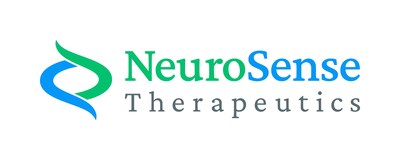New Analysis Shows PrimeC Significantly Improves Key miRNAs in ALS Patients
NeuroSense Therapeutics has announced significant findings from its PARADIGM clinical trial of PrimeC for ALS treatment. The study revealed that PrimeC effectively regulates microRNAs (miRNAs), which are important genetic markers controlling gene expression in ALS progression. The treatment showed a 2-fold reduction in several miRNAs, with no similar changes observed in the placebo group. PrimeC enhances miRNA maturation by influencing Dicer, an endonuclease that processes precursor miRNA into active forms, potentially addressing the underlying mechanisms of ALS. This breakthrough suggests PrimeC's potential as a disease-modifying treatment rather than just symptom management.
NeuroSense Therapeutics ha annunciato risultati significativi dal suo studio clinico PARADIGM su PrimeC per il trattamento della SLA. Lo studio ha rivelato che PrimeC regola efficacemente i microRNA (miRNA), che sono importanti marcatori genetici che controllano l'espressione genica nella progressione della SLA. Il trattamento ha mostrato una riduzione di 2 volte di diversi miRNA, senza cambiamenti simili osservati nel gruppo placebo. PrimeC migliora la maturazione dei miRNA influenzando Dicer, un'endonuclease che elabora il miRNA precursore in forme attive, affrontando potenzialmente i meccanismi sottostanti della SLA. Questa scoperta suggerisce il potenziale di PrimeC come trattamento modificante la malattia piuttosto che semplice gestione dei sintomi.
NeuroSense Therapeutics ha anunciado hallazgos significativos de su ensayo clínico PARADIGM sobre PrimeC para el tratamiento de la ELA. El estudio reveló que PrimeC regula de manera efectiva los microARN (miARN), que son marcadores genéticos importantes que controlan la expresión génica en la progresión de la ELA. El tratamiento mostró una reducción de 2 veces en varios miARN, sin cambios similares observados en el grupo placebo. PrimeC mejora la maduración del miARN al influir en Dicer, una endonucleasa que procesa el miARN precursor en formas activas, potencialmente abordando los mecanismos subyacentes de la ELA. Este avance sugiere el potencial de PrimeC como un tratamiento modificador de la enfermedad en lugar de solo manejo de síntomas.
NeuroSense Therapeutics는 ALS 치료를 위한 PrimeC의 PARADIGM 임상 시험에서 중요한 발견을 발표했습니다. 연구에 따르면 PrimeC는 ALS 진행에서 유전자 발현을 조절하는 중요한 유전적 마커인 마이크로RNA(miRNA)를 효과적으로 조절합니다. 이 치료법은 몇 가지 miRNA에서 2배 감소를 나타냈으며, 위약 그룹에서는 비슷한 변화가 관찰되지 않았습니다. PrimeC는 미성숙 miRNA를 활성 형태로 전환하는 엔도뉴클레아제 Dicer에 영향을 미쳐 miRNA 성숙을 촉진하여 ALS의 근본적인 메커니즘을 해결할 가능성이 있습니다. 이 혁신은 PrimeC가 단순한 증상 관리가 아닌 질병 수정 치료제로서의 잠재력을 갖고 있음을 시사합니다.
NeuroSense Therapeutics a annoncé des résultats significatifs de son essai clinique PARADIGM sur PrimeC pour le traitement de la SLA. L'étude a révélé que PrimeC régule efficacement les microARN (miARN), qui sont des marqueurs génétiques importants contrôlant l'expression génique dans la progression de la SLA. Le traitement a montré une réduction de 2 fois de plusieurs miARN, sans changements similaires observés dans le groupe placebo. PrimeC améliore la maturation des miARN en influençant Dicer, une endonucléase qui transforme le précurseur de miARN en formes actives, abordant potentiellement les mécanismes sous-jacents de la SLA. Cette découverte suggère le potentiel de PrimeC en tant que traitement modificateur de la maladie plutôt que comme simple gestion des symptômes.
NeuroSense Therapeutics hat bedeutende Erkenntnisse aus seiner PARADIGM-Studie zu PrimeC zur Behandlung von ALS veröffentlicht. Die Studie zeigte, dass PrimeC effektiv mikroRNAs (miRNAs reguliert), die wichtige genetische Marker sind, die die Genexpression im Fortschreiten von ALS steuern. Die Behandlung zeigte eine doppelte Reduktion mehrerer miRNAs, während in der Placebo-Gruppe keine ähnlichen Veränderungen beobachtet wurden. PrimeC verbessert die Reifung von miRNAs, indem es Dicer beeinflusst, eine Endonuklease, die das prämiRNA in aktive Formen umwandelt, und könnte somit die zugrunde liegenden Mechanismen von ALS angehen. Dieser Durchbruch deutet darauf hin, dass PrimeC als krankheitsmodifizierende Therapie und nicht nur zur Symptomlinderung eingesetzt werden kann.
- PrimeC demonstrated significant regulation of key miRNAs in ALS patients
- Treatment showed 2-fold reduction in several miRNAs compared to placebo
- Clear differentiation from placebo group with consistent effects
- None.
Insights
The PARADIGM trial results represent a significant scientific advancement in ALS treatment. The study demonstrates PrimeC's ability to regulate microRNAs, particularly showing a notable 2-fold reduction in several key miRNAs - a important finding as miRNA dysregulation is a known factor in ALS progression. The drug's mechanism of enhancing miRNA maturation through Dicer interaction is particularly noteworthy, as it addresses fundamental disease pathways rather than just symptoms.
The clear differentiation from placebo and consistent effects in treated patients provide strong evidence for PrimeC's potential as a disease-modifying treatment. However, investors should note that while these biomarker results are promising, they will need to be correlated with clinical outcomes to establish true therapeutic value. The collaboration with Professor Noam Shomron adds credibility to the research, though larger-scale validation studies will be necessary to confirm these findings.
Groundbreaking PARADIGM Trial Offers New Hope for ALS Treatment
ALS is a fatal disease, known for its relentless destruction of motor neurons, leading to loss of muscle function, speech, and eventually, the ability to breathe. Understanding the molecular drivers of ALS is key to finding a way to slow or stop its progression. These findings represent a breakthrough in that understanding.
Key Findings:
- Regulation ofCritical miRNAs: The PARADIGM trial revealed that PrimeC regulates specific miRNAs - key genetic markers that control gene expression involved in ALS progression. These miRNAs were unchanged in the placebo group, underscoring the profound impact of PrimeC on ALS's pathological pathways. MicroRNAs play a crucial role in regulating how genes express themselves, and their dysregulation has long been linked to ALS. By restoring balance to these genetic regulators, PrimeC offers a new method of combating this devastating disease.
- Restoring miRNA Balance in ALS Treatment: PrimeC enhances microRNA (miRNA) maturation, addressing the underlying mechanisms of ALS. By influencing Dicer, the endonuclease that processes precursor miRNA into active forms, PrimeC may restore the balance of dysregulated miRNAs in ALS patients. This modulation is thought to facilitate the production of functional miRNAs that regulate gene expression, allowing PrimeC to target disrupted genetic pathways in ALS and potentially slow disease progression and improve patient outcomes. Clear Differentiation from Placebo: Patients treated with PrimeC demonstrated consistent effect in miRNA manifestation, with no similar changes seen in the placebo group. This clear distinction offers compelling evidence of PrimeC's potential as a disease modifying treatment, rather than a symptomatic one.
Conclusion:
In conclusion, PrimeC demonstrated beneficial regulation of key miRNAs, supporting its potential to engage critical genetic targets involved in ALS progression. The 2-fold reduction of several miRNAs following PrimeC treatment is particularly striking, offering both a powerful biomarker for tracking ALS and a potential pathway for new therapeutic strategies. This regulation of miRNAs underscores PrimeC's capability to influence ALS at the regulatory level, where previous treatments have struggled.
This work was done in collaboration with Professor Noam Shomron who is a world-leading scientist in the field of genetics.
The results from the PARADIGM trial reflect NeuroSense Therapeutics' dedication to developing treatments that go beyond surface-level symptom management, aiming instead to address the root causes of neurodegenerative diseases. PrimeC's ability to regulate miRNAs represents an important step toward a future where ALS patients have more therapeutic options.
For more information about NeuroSense Therapeutics and its ongoing research, visit www.neurosense-tx.com.
About ALS
Amyotrophic lateral sclerosis ("ALS") is an incurable neurodegenerative disease that causes complete paralysis and death within 2-5 years from diagnosis. Every year, more than 5,000 people are diagnosed with ALS in the
About PARADIGM
PARADIGM is a prospective, multinational, randomized, double-blind, placebo-controlled Phase 2b (NCT05357950) clinical trial of PrimeC in ALS. The trial included 68 participants living with ALS in
As previously reported, in the 6-month double-blind segment of the trial, the data showed clinically meaningful signs of efficacy with a
About PrimeC
PrimeC, NeuroSense's lead drug candidate, is a novel extended-release oral formulation composed of a unique fixed-dose combination of two FDA-approved drugs: ciprofloxacin and celecoxib. PrimeC is designed to synergistically target several key mechanisms of ALS that contribute to motor neuron degeneration, inflammation, iron accumulation and impaired ribonucleic acid ("RNA") regulation to potentially inhibit the progression of ALS. NeuroSense completed a Phase 2a clinical trial which met its safety and efficacy endpoints including reducing functional and respiratory deterioration and statistically significant changes in ALS-related biological markers indicating PrimeC's biological activity. PrimeC was granted Orphan Drug Designation by the
About NeuroSense
NeuroSense Therapeutics, Ltd. is a clinical-stage biotechnology company focused on discovering and developing treatments for patients suffering from debilitating neurodegenerative diseases. NeuroSense believes that these diseases, which include amyotrophic lateral sclerosis (ALS), Alzheimer's disease and Parkinson's disease, among others, represent one of the most significant unmet medical needs of our time, with limited effective therapeutic options available for patients to date. Due to the complexity of neurodegenerative diseases and based on strong scientific research on a large panel of related biomarkers, NeuroSense's strategy is to develop combined therapies targeting multiple pathways associated with these diseases.
For additional information, we invite you to visit our website and follow us on LinkedIn, YouTube and X. Information that may be important to investors may be routinely posted on our website and these social media channels.
Forward-Looking Statements
This press release contains "forward-looking statements" that are subject to substantial risks and uncertainties. All statements, other than statements of historical fact, contained in this press release are forward-looking statements. Forward-looking statements contained in this press release may be identified by the use of words such as "anticipate," "believe," "contemplate," "could," "estimate," "expect," "intend," "seek," "may," "might," "plan," "potential," "predict," "project," "target," "aim," "should," "will" "would," or the negative of these words or other similar expressions, although not all forward-looking statements contain these words. Forward-looking statements are based on NeuroSense Therapeutics' current expectations and are subject to inherent uncertainties, risks and assumptions that are difficult to predict and include statements regarding Prime C's potential to treat ALS. Further, certain forward-looking statements are based on assumptions as to future events that may not prove to be accurate. The future events and trends may not occur and actual results could differ materially and adversely from those anticipated or implied in the forward looking statements. These risks include the risk of a delay in submission by the Company of its regulatory dossier, that regulatory approvals for PrimeC will be delayed or not obtained in
Logo: https://mma.prnewswire.com/media/1707291/4985814/NeuroSense_Therapeutics_Logo.jpg
![]() View original content to download multimedia:https://www.prnewswire.com/news-releases/new-analysis-shows-primec-significantly-improves-key-mirnas-in-als-patients-302285936.html
View original content to download multimedia:https://www.prnewswire.com/news-releases/new-analysis-shows-primec-significantly-improves-key-mirnas-in-als-patients-302285936.html
SOURCE NeuroSense








